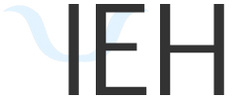- Central to assessment and treatment of children.
- Use of non-directive, non-suggestive, reflective (Rogerian) interview techniques.
- Focus is on individual child and family.
- Competence requires education and experience. It requires skills for engaging, building trust, facilitating openness and candor in opposition to resistance.
- Need for monitoring logical plausibility, reliability, and congruity between content of responses and affect of child.
- Tailored to assessment in targeted areas, e.g. child alienation, psychological permanence, child sexual abuse.
- Facilitates data collection not readily tapped by clinical child interview.
- Taps individual rather than group data about special areas of inquiry.
- Effectiveness of M.H. clinical provider thrives upon development of specialized interview tools which enhance scope of assessment and treatment efforts.
- Administered in accord with standard clinical child interview practices.
- Provides group data, scientifically gathered, which may be used to measure how an individual functions or responds relative to group norms.
- Fits in with present emphasis on Evidenced Based Practice (EBP) in clinical practice. Adopted by some health insurance companies as a standard for determining when payment for services is approved, and when payment for services utilizing methods or procedures not subjected to randomized clinical trial is rejected. This potentially excludes clinically demonstrated efficacious methods and procedures from being applied to particular clients who stand to benefit from such services.
- Within forensic child custody evaluation, focus must be on the individual, whose history likely makes him/her an outlier relative to standardization sample.
- Much information sought in forensic child custody evaluation is not tapped via available standardized tests, which tend to focus on diagnostic assessment.
- Although the use of standardized tests and procedures within forensic child custody evaluation is encouraged and incorporated within published guidelines, it is not adopted as a standard mandated by any regulatory body.
- The Frye Standard, adopted in 1923 in New York State, is a legal standard which is applicable in considering the admissibility of clinical data put forth by expert witnesses. The expert opinion in question is admissible provided that the scientific technique used in forming the basis for the opinion “is generally accepted as reliable in the relevant scientific community.”
- Data derived from record reviews of relevant documents and from interviews with parents and professionals with direct knowledge of the child, such as pediatrician, therapist, and teacher, are essential to the evaluation.
- Such data provides additional subjective and objective perspectives, while also offering a means of corroborating observations and impressions derived from clinical child interview, specialized structured interview and standardized testing.
Leonard T. Gries, Ph.D.
September 14, 2022

 RSS Feed
RSS Feed